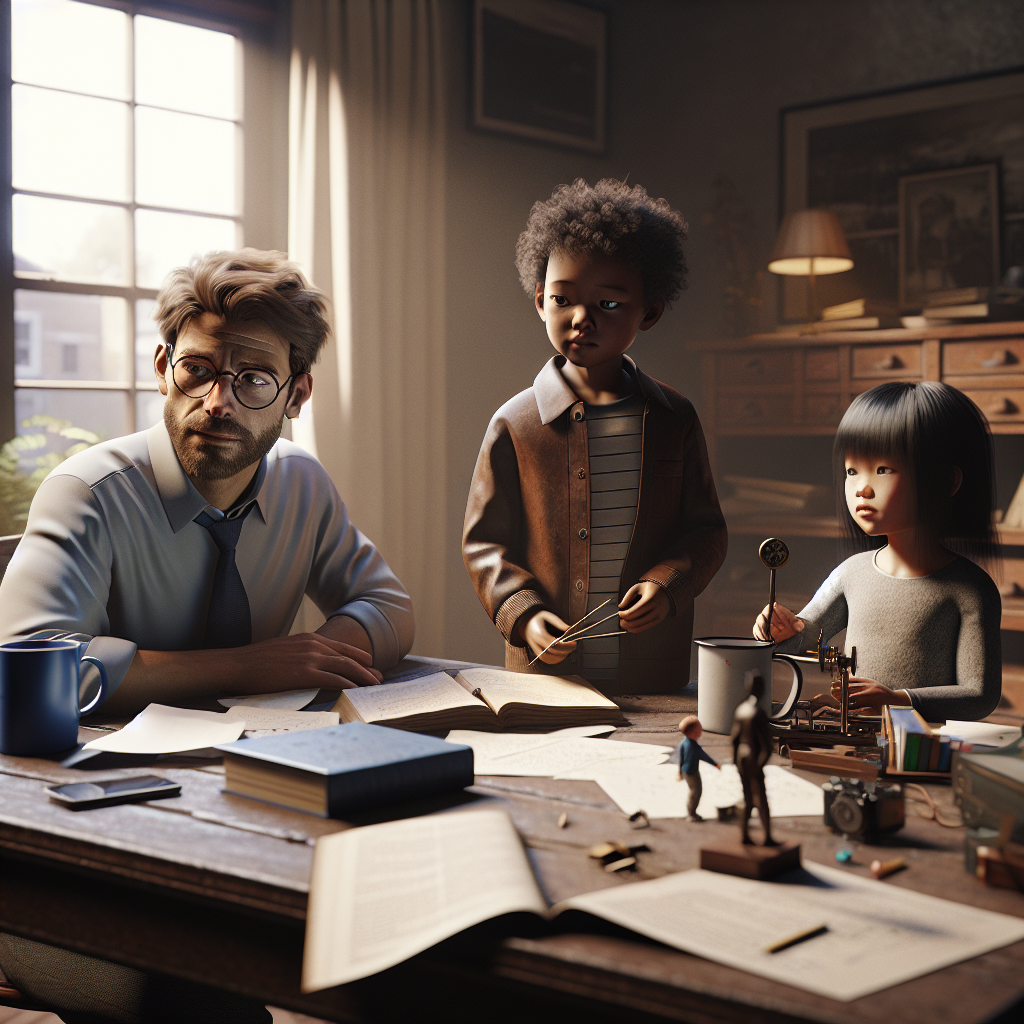Embracing Uncertainty: Why It’s Okay for Dad to Say ‘I Don’t Know’
Parenting often paints fathers as unwavering pillars of knowledge and strength. Yet, the reality is that no dad, regardless of experience or education, has all the answers all the time. Learning to say ‘I don’t know’ is not a sign of weakness but rather an important step in cultivating honesty, humility, and trust with children. When a dad admits uncertainty, it creates space for curiosity, learning, and connection that benefits the whole family.
Acknowledging limits can be challenging, especially in a culture that expects fathers to be infallible. However, modeling vulnerability and intellectual honesty teaches children critical life skills beyond any textbook. They learn how to handle uncertainty with grace and develop critical thinking by exploring answers alongside their dad. This article explores why saying ‘I don’t know’ matters and offers strategies dads can use to navigate those moments with confidence and warmth.
Strengthening Relationships When Dad Admits Uncertainty
The Power of Honesty in Parenting
When dad admits uncertainty, it sends a powerful message: honesty is more valuable than pretending to have all the answers. Children are keen observers and can often sense when parents are bluffing; acknowledging “I don’t know” can enhance credibility rather than diminish it. It fosters open communication, encouraging kids to share their doubts and questions freely.
– Builds mutual respect between parent and child
– Encourages children to be truthful about their feelings and gaps in knowledge
– Creates opportunities for collaborative problem-solving
Building Trust through Vulnerability
Vulnerability is a cornerstone of deep, trusting relationships. When dads openly admit they don’t have all the answers, children learn that it’s acceptable to be imperfect. This lays a foundation for emotional safety in the family.
For example, a father who says, “I’m not sure about that; let’s find out together,” models humility and teamwork. Over time, this approach nurtures resilience as kids understand that uncertainty is a natural part of life rather than something to fear or hide.
How Saying ‘I Don’t Know’ Encourages Lifelong Learning
Modeling Intellectual Curiosity
When a dad admits uncertainty, it transforms moments of doubt into invitations for discovery. Instead of shutting down curiosity, it opens doors for joint exploration, problem-solving, and critical thinking.
Parents can:
– Search for answers online together
– Read books or articles pertinent to the question
– Discuss varying perspectives and evaluate evidence
This teaches kids that learning is ongoing and that seeking knowledge actively is both valuable and enjoyable.
Developing Critical Thinking Skills
Children who witness their parents confronting the unknown demonstrate more confidence in questioning facts and sources. This is crucial in an era flooded with misinformation and rapid change.
Encouraging kids to ask questions such as “How do we know?” or “Where can we find reliable information?” builds discernment. When dad admits uncertainty, it legitimizes questioning as part of learning rather than something to be avoided.
Practical Strategies for Dads to Navigate ‘I Don’t Know’ Moments
Normalize the Phrase
Dads can start by normalizing “I don’t know” within daily conversations. Avoiding shame or discomfort around not knowing encourages openness.
– Use the phrase naturally rather than as a last resort
– Share personal experiences of learning through uncertainty
– Praise kids for asking thoughtful questions
Turn Uncertainty Into Opportunity
Transforming these moments into collaborative quests for information can be fun and bonding.
Try:
1. Searching for answers online using trusted sites
2. Visiting libraries or museums together
3. Inviting children to interview family members or experts
4. Conducting simple experiments or projects at home
Set Boundaries When Needed
Sometimes dads will encounter questions beyond their knowledge or inappropriate to answer fully. It’s important to acknowledge that while it’s good to say “I don’t know,” it’s also acceptable to say, “That’s something we can talk about later,” or “I’ll learn more so we can discuss it together.”
This sets healthy boundaries and models responsible handling of uncertainty.
The Impact of a Dad Admitting Uncertainty on Child Development
Emotional Intelligence and Resilience
Children learn to tolerate ambiguity and develop emotional resilience when dads openly admit uncertainty rather than delivering quick fixes. It helps them understand that it’s okay to feel unsure and that growth often comes from confronting discomfort.
Enhanced Communication Skills
Hearing “I don’t know” in a safe context encourages kids to voice their thoughts honestly, leading to richer, more meaningful family communication patterns.
Research from the Yale Center for Emotional Intelligence shows that children raised with authentic emotional exchanges demonstrate greater empathy and conflict resolution skills later in life.
Overcoming Common Challenges for Dads Admitting Uncertainty
Breaking the ‘Parent as All-Knowing’ Myth
Many dads struggle with the expectation of being the all-knowing authority figure. To overcome this, fathers can remind themselves that their role is as much about guiding as it is about growing alongside their children.
Reflecting on personal learning moments or embracing a growth mindset helps ease this pressure.
Managing External Judgments
Fathers sometimes worry about being judged by partners, family, or society for admitting “I don’t know.” It helps to communicate openly with co-parents about valuing honesty and to seek support from parenting communities that champion vulnerability.
When Dad Admits Uncertainty: Real-Life Examples
– A father’s honest response to a child’s question about a complex social issue opens the door to monthly family discussions where everyone shares perspectives and learns together.
– During a science homework session, a dad admits he’s unsure about a new concept and uses the opportunity to look up information online, encouraging the child’s involvement.
– Facing questions about emotions and mental health, a dad says, “I’m still learning about feelings myself,” which breaks stigma and invites ongoing dialogue.
Such examples demonstrate how admitting uncertainty builds stronger bonds and enriches the parenting journey.
Additional Resources for Parents Embracing Uncertainty
– Mindful Parenting articles that advocate for openness and vulnerability in families
– Educational websites like [PBS Parents](https://www.pbs.org/parents/) for collaborative learning activities
– Books such as “The Growth Mindset” by Carol Dweck, which encourages embracing challenges and uncertainty
Exploring these resources can support dads seeking to foster a culture of honest inquiry within their homes.
Wrapping Up: The Strength in Saying ‘I Don’t Know’
Recognizing that dads don’t have all the answers empowers families to grow together, building trust, curiosity, and resilience. When a dad admits uncertainty, he models authenticity and a growth mindset that benefits children’s emotional and intellectual development. Navigating these moments with openness transforms potential discomfort into rich learning experiences that deepen connections and prepare kids for a complex world.
Take the first step by embracing “I don’t know” as a gateway to discovery. Connect with other parents, explore together, and celebrate curiosity as a family value.
For personalized guidance and support on your parenting journey, visit khmuhtadin.com and discover tips and strategies tailored to today’s dads.



